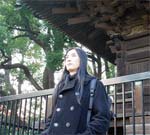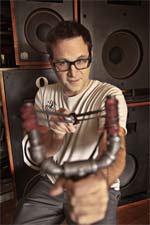| |
|
|
|
|
|
|
| |

$15.99 CD


$12.99 MP3


|
|
SUPERPITCHER
Kilimanjaro
(Kompakt)
 "Country Boy" "Country Boy"
 "Who Stole the Sun" "Who Stole the Sun"
Six years between albums can be an eternity, especially in the fast-moving world of dance music, where styles morph and change on a weekly basis. But Aksel Schaufler (a/k/a Superpitcher) has kept awfully busy since 2004's Here Comes Love, with remixes, performances, and of course his oddball Supermayer project with Michael Mayer, and you have to wonder if he's even noticed that so much time has passed since his signature project released a batch of new songs. Good things come to those who wait, it turns out, and the long-anticipated Kilimanjaro isn't just a worthy follow-up; it seems that Schaufler has tamed the transitional, exploratory nature of his recent projects (Supermayer Saves the Day included) into a stylistically diverse new album -- no mean feat for tech-pop -- that still hangs together as a cohesive whole. Following a brief pastoral montage of church chimes, birdsong and children's voices, Kilimanjaro kicks into the nocturnal digi-dub of "Voodoo," a track which finds Schaufler interrupting his icy croon with playful falsetto shouts, as a phantom organ passage and bell tones float atop the hypnotizing rhythm. In contrast, "Country Boy" nicely recalls his earlier minimal house-pop works, only the production here is more ornate, detailed and deliberate -- from the vocal hook to the stereo-panned keyboard melodies and crystalline washes of reverb that ebb and flow in the background. There's also a lot more live instrumentation happening, from the scratchy tremolo guitar that wiggles up and down during the bizarre, dirty fun romp of "Rabbits in a Hurry" to the use of electric bass and acoustic percussion throughout.
Kilimanjaro takes a more melancholic tone during its second half, with tracks like the minor-key lament, "Give Me My Heart Back," or the dark, reggae-tinged "Who Stole the Sun," which also seemingly merges the loungey downtempo atmosphere of pre-Moon Safari Air with Wall-era Pink Floyd, as Schaufler asks in his hushed voice, "Is there anybody out there?" Even the shimmering, piano-led house of "Joanna" turns out to be a song of longing, and in turn becomes a very human moment for Superpitcher. Then again, there's always been a warmth bubbling through Schaufler's productions, thawing his detached vocal melodies, and he's always been one to inject emotion, humor and soul into his productions -- and it's all here in spades. Electronic music has certainly morphed into many different new sub-genres since the minimal house halcyon days of Here Comes Love, but even in this era of post-dubstep, chillwave, drag and funky, Schaufler managed to construct a new classic that's still unmistakably Superpitcher. [GH]
Order CD by Texting "omcdsuperpitcherkilimanjaro" to 767825 |
|
| |
|
|
|
|
|
|
|


































